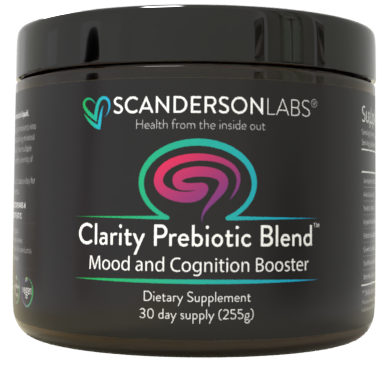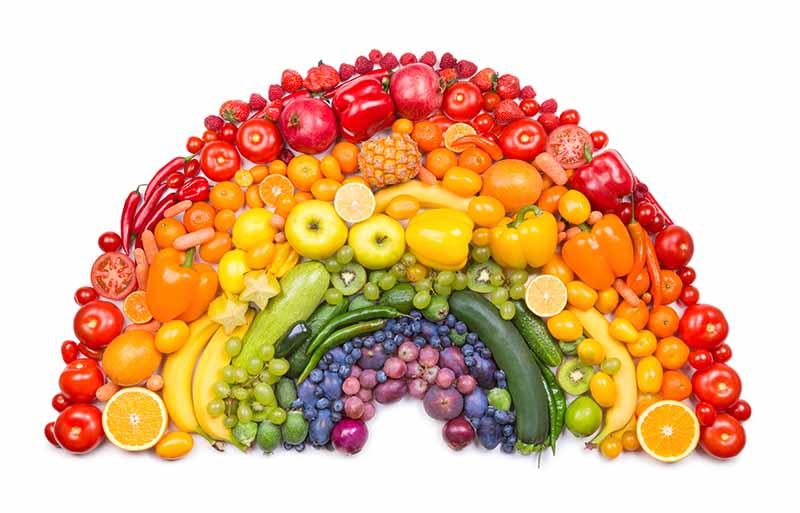Developing Your Gut-Brain Axis: The First Thousand Days
As a spanking new baby, you are completely defenseless against the dangerous pathogens in the world. Your mother’s beneficial microbes—delivered by vaginal bacteria, breast milk, and even kisses—are designed to protect you against that onslaught by kick-starting your very own microbiota.
Mother’s milk is a wonderful substance that includes prebiotics, probiotics and even a rudimentary immune system to get you and your gut microbiota underway. Milk is a favorite food of bacteria like Bifidobacteria and Lactobacillus. If those sound familiar, it’s because they are the most prominent microbes in yogurt. With all that milk, your colon acts a lot like a yogurt maker. These bacteria eat the complex sugars in breast milk and create substances like butyrate which is ambrosia to the cells lining your gut. This keeps you in the pink of health and prevents pathogens from getting anywhere near your delicate gut lining.
Clearly, your microbiota is a good thing, but how does it all work?
Germ-Free Mice
To find out more about the role microbes play in our lives, scientists turned to germ-free mice. These animals have absolutely no bacteria and must be raised in a special sterile environment.
In 2004, Nobuyuki Sudo published a study with germ-free mice that launched the gut-brain movement. Sudo showed that germ-free mice had an exaggerated stress response. Their behavior was different from ordinary germy mice. He also found that they had less of a chemical that encourages nerve growth, leading to lifelong cognitive defects. In other words, Sudo showed that bacteria play a role in brain development and behavior. It was a shocking result, and the implications are still ricocheting through the hallways of academia.
Sudo showed that he could restore normalcy to these mice by giving them a microbiota—but only if he did so before the mouse was three weeks old. That meant there was a limited window of time where the microbiota—and thus future behavior—could be changed. This early window, which in humans translates to about a thousand days, can set you up for a healthy start or establish a miserable legacy for the rest of your life.
Good or bad, your microbiota acts like a bona fide organ, interacting closely with all your major bodily systems, including your gut, your immune system, and your brain.
Your Gut
Your gut has its own “brain” in the form of a complex web of nerves that surround the intestines like a tube sock. Like your brain, it contains glial cells, which serve as the immune cells of your nervous system. These cells play a role in the communication between the microbiota and the brain, via the vagus nerve, and they help to develop the mucus layer in your gut.
This mucus layer aids the gut in the tricky job of letting nutrients in while keeping microbes at bay. No matter how useful microbes may be in your gut, they can be deadly if they slip into your bloodstream and get ferried to each and every tissue in your body. This all-important mucus barrier only develops and operates properly in the presence of a healthy microbiota. Germ-free mice lack glial cells and therefore are deficient in creating a mucus layer, leaving them highly vulnerable to pathogens.
Your Immune System
So we see that a microbiota is healthy for proper development, but we also know that our immune system is designed to eradicate microbes—so how does it give a pass to the trillions of microbes that luxuriate in your gut? Although it is not fully understood, there are several ways that your body promotes microbial tolerance—but only during those first thousand days.
You may be familiar with T-cells and B-cells that fight off infection, but there is another very important class of immune cells called T-regulatory cells, or T-regs. These cells put limits on the immune system, telling it to back off once an infection clears. Importantly, T-regs also provide long-lasting tolerance to beneficial bacteria. Problems with T-reg function are behind most autoimmune and inflammatory diseases.
Your mom helps too. Throughout her life, she has maintained an immune system that fights pathogens yet tolerates beneficial bacteria. Much of that was inherited from her mom. A compact version of that immune system is bundled with her milk, passing tolerance down through the generations.
Your Brain
As your microbiota grows in complexity, so does your nervous system. Myelin, a fatty substance that acts like electrical insulation, begins to wrap around nerve cells throughout your brain, a project that will take the next four years. Without myelin, there can be cross-talk between your nerves, disturbing proper communication. This is one of the reasons that you can’t remember being this young. In germ-free mice, myelin develops abnormally, implying that microbes are important for properly insulating your growing brain.
The blood-brain barrier is designed to prevent pathogens and toxins from entering your brain. But in germ-free mice, that doesn’t happen, leaving the brain vulnerable to insults and disrupting normal brain development. The blood-brain barrier can be restored in germ-free mice by providing them with a working microbiota. So, ironically, to protect your brain from microbes, you need a healthy microbiota.
Your brain has its own immune system consisting of cells called microglia—related to the glial cells mentioned earlier. In germ-free mice, these microglia are stunted, misshapen and immature. That implies that microbes are necessary to properly develop brain immunity.
Germ-free mice also have lower levels of a protein that promotes the growth of neurons. That implies that microbes are necessary for the proper growth of neurons.
All of these brain abnormalities potentially affect cognition, behavior, and mood—and amazingly, all are affected by the microbiota.
But Mice?
Germ-free mice are the source of much of this research, but don’t wait for human versions of these studies; we don’t have germ-free people. Still, mouse studies track fairly well with human studies, even when it comes to the brain and behavior. Rodents, after all, are the go-to animals for testing psychoactive drugs.
Moreover, new human studies indicate that mouse experiments are pointing in the right direction. One such study in Finland looked at 75 infants that were given a Lactobacillus supplement or a placebo and then tracked for thirteen years. At that point, 17 percent of the control group had ADHD or Asperger’s, but none of the kids who took the probiotics did. The authors concluded that “Probiotic supplementation early in life may reduce the risk of neuropsychiatric disorder development later in childhood.”
Other human studies looked at famine, finding results similar to animal studies. Undernourished infants often suffer from stunted nerve cell growth creating cognitive abnormalities, some of which can be permanent. This neural stunting may be due in part to the damaged microbiota that accompanies malnutrition.
Although most of this research reveals correlations, not causality, it nevertheless lays out the surprisingly intertwined development of brain and microbiota.
Graduation
At the end of your first thousand days, you are typically weaned and eating solid food. That marks the beginning of your adult microbiota. Once established, it is difficult to change your particular blend of microbes; you’re pretty much stuck with them.

BUY ON AMAZON
Hopefully, your microbiota wasn’t injured by too many antibiotics or a nasty illness. A damaged microbiota will leave you more susceptible to inflammatory diseases, often accompanied by depression and anxiety. On the other hand, a rich and diverse microbiota will give you a head start in life with good health and a sunny disposition. Eat your veggies, and if you can’t get enough, try a prebiotic or probiotic blend.
Remarkably, what happens in your first thousand days could change your mood for life.
References
Sudo, Nobuyuki, Yoichi Chida, Yuji Aiba, Junko Sonoda, Naomi Oyama, Xiao-Nian Yu, Chiharu Kubo, and Yasuhiro Koga. “Postnatal Microbial Colonization Programs the Hypothalamic-Pituitary-Adrenal System for Stress Response in Mice.” The Journal of Physiology 558, no. Pt 1 (July 1, 2004): 263–75.
Kabouridis, Panagiotis S., Reena Lasrado, Sarah McCallum, Song Hui Chng, Hugo J. Snippert, Hans Clevers, Sven Pettersson, and Vassilis Pachnis. “Microbiota Controls the Homeostasis of Glial Cells in the Gut Lamina Propria.” Neuron 85, no. 2 (January 21, 2015): 289–95.
Erny, Daniel, Anna Lena Hrabě de Angelis, Diego Jaitin, Peter Wieghofer, Ori Staszewski, Eyal David, Hadas Keren-Shaul, et al. “Host Microbiota Constantly Control Maturation and Function of Microglia in the CNS.” Nature Neuroscience 18, no. 7 (July 2015): 965–77.
Cryan, John F., and Timothy G. Dinan. “Mind-Altering Microorganisms: The Impact of the Gut Microbiota on Brain and Behaviour.” Nature Reviews. Neuroscience 13, no. 10 (October 2012): 701–12. https://doi.org/10.1038/nrn3346.
Pärtty, Anna, Marko Kalliomäki, Pirjo Wacklin, Seppo Salminen, and Erika Isolauri. “A Possible Link between Early Probiotic Intervention and the Risk of Neuropsychiatric Disorders Later in Childhood: A Randomized Trial.” Pediatric Research 77, no. 6 (June 2015): 823–28.
Goyal, Manu S., Siddarth Venkatesh, Jeffrey Milbrandt, Jeffrey I. Gordon, and Marcus E. Raichle. “Feeding the Brain and Nurturing the Mind: Linking Nutrition and the Gut Microbiota to Brain Development.” Proceedings of the National Academy of Sciences of the United States of America 112, no. 46 (November 17, 2015): 14105–12.



